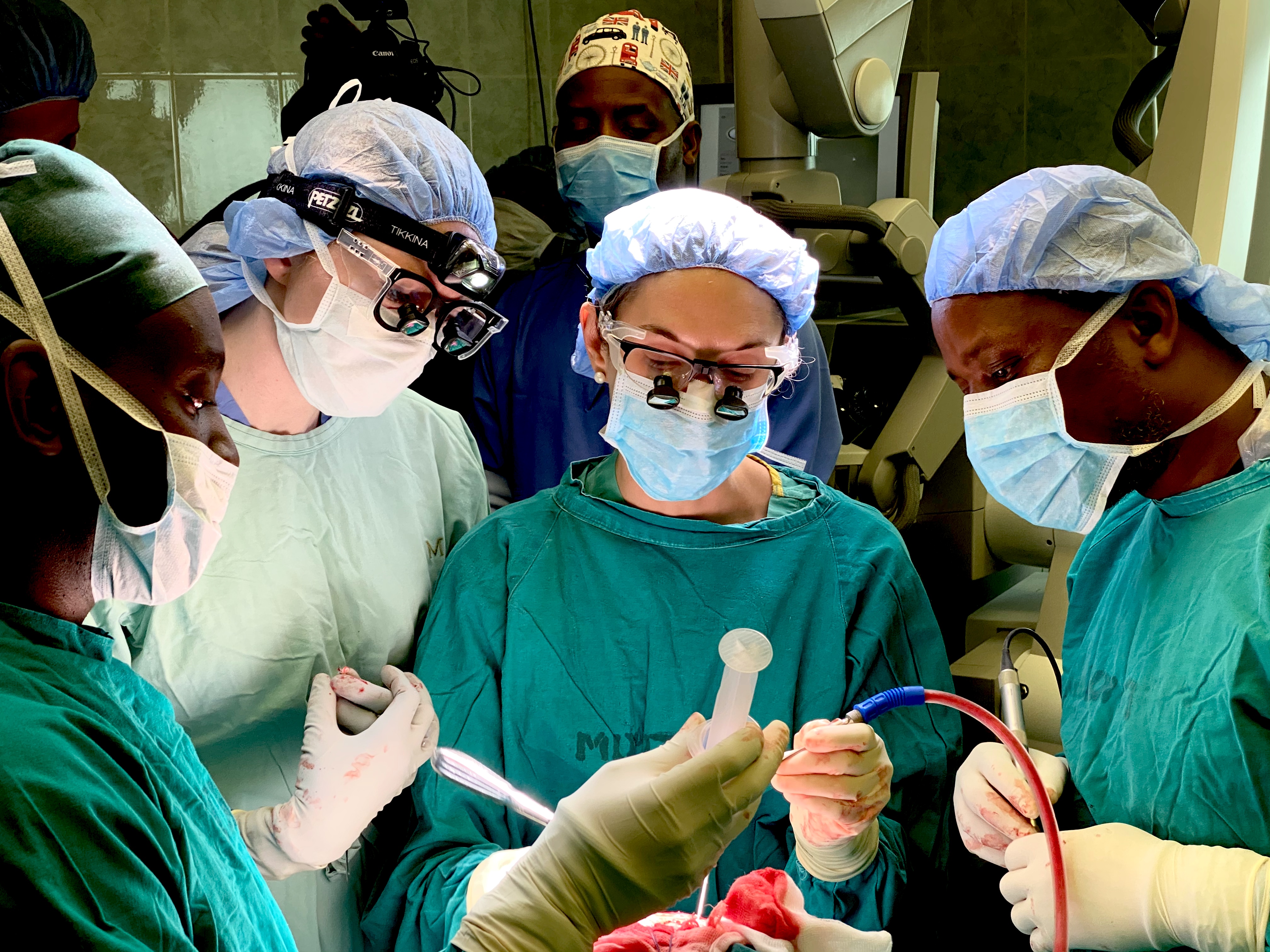
For the past decade, our neurosurgical program in Tanzania has focused on neurotrauma and birth defects largely because they affect children and young adults; returning them to good health results in a large number of additional productive years of life. This year we expanded our scope to include seizure disorders, which also disproportionately affect children.
Untreated seizures can lead to cognitive deficits and greatly limit a young patient’s ability to lead a normal life, making epilepsy an important area of focus for education and surgical development.
Tanzania is one of several developing nations with a high incidence of epilepsy due to the prevalence of conditions (parasitic, bacterial, or viral infections; perinatal brain damage; head injuries; toxic agents) that can cause seizures. The burden on children is high, but the multi-disciplinary tools to evaluate and treat the condition are still in development in these countries. Since early evaluation and intervention can prevent cognitive and functional decline, teaching local providers to assess and treat these patients can greatly serve communities and children.
Once properly diagnosed, many cases of epilepsy can be managed medically by a neurologist. Although not all patients respond to anti-seizure medication, many of these refractory cases can be treated surgically. As a result, neurologists and neurosurgeons work together in a comprehensive effort to provide the best care for epilepsy patients, determining what medication regimens are most appropriate and which patients will benefit from surgical intervention.
That’s why it was so important that this year’s classroom course included, for the first time, a full session on epilepsy led by pediatric neurosurgeon Caitlin Hoffman, M.D., of Weill Cornell Medicine and pediatric neurologist Evan Lewis, M.D., of the Neurology Centre of Toronto. Lectures began with an overview of epilepsy, followed by detailed presentations on proper diagnosis, EEG interpretation, and selecting the most effective treatment option. After the lectures, Dr. Hoffman and Dr. Lewis conducted an interactive case review to put real examples of patients in front of the participants. Dr. Lewis is currently planning a webinar on epilepsy diagnosis and management for early next year.
Our new epilepsy effort made news in Tanzania when Dr. Hoffman performed the first-ever functional hemispherotomy in Tanzania on a four-year-old boy with intractable seizures. This procedure involves disconnecting one hemisphere of the brain from the other and can greatly reduce or even eliminate seizures. Dr. Hoffman was assisted by Dr. Whitney Parker, a Weill Cornell Medicine neurosurgical resident, as well as by Dr. Japhet Ngerageza, the patient’s attending neurosurgeon. The surgery was successful, and the little boy is now seizure free. We hope for this to represent the beginning of a successful collaboration to build sustainable, effective care for children with epilepsy in Tanzania. Download the 2019 Tanzania Project newsletter